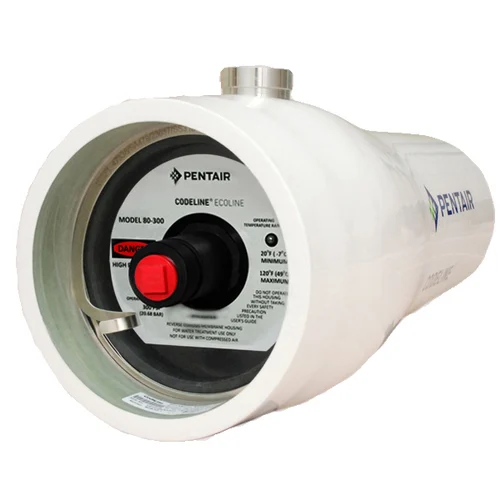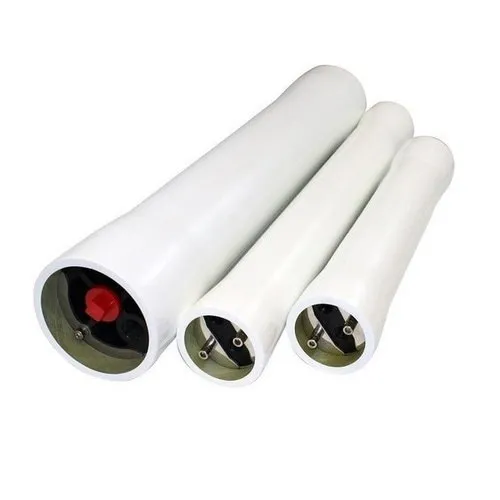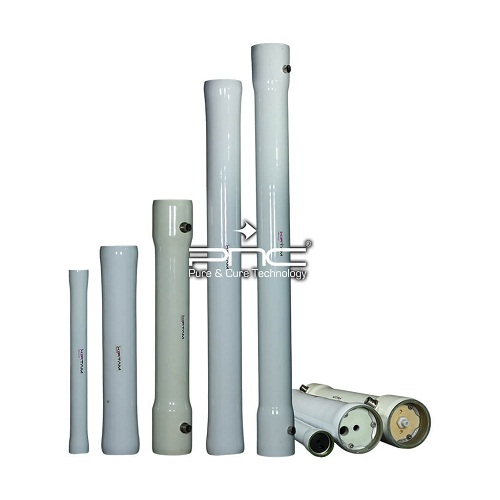
our category
FRP PRESSURE TUBE
FRP Pressure Tube: Durable Solutions for High-Pressure Applications
An FRP pressure tube (Fiberglass Reinforced Plastic pressure tube) is a specialized type of tubing designed to handle high-pressure applications in various industries. These tubes are made from a combination of fiberglass and resin, creating a strong, durable, and lightweight material that excels in withstanding extreme pressure and harsh environmental conditions. FRP pressure tubes are widely used in industries such as water treatment, chemical processing, oil and gas, and more due to their excellent strength-to-weight ratio and resistance to corrosion.
Enquire Now
What is an FRP Pressure Tube?
An FRP pressure tube is a type of pressure vessel made from fiberglass reinforced with polymer resin, typically used to transport fluids under pressure. The fiberglass reinforcement provides exceptional strength and stiffness, while the resin offers chemical resistance and durability. The result is a high-performance tube that is both lightweight and capable of enduring demanding pressure and environmental conditions.
The unique construction of FRP pressure tubes makes them an excellent choice for applications that involve the transportation or containment of fluids, gases, and chemicals under pressure, as they offer a high level of reliability and safety compared to traditional materials like steel or plastic.
Key Features of FRP Pressure Tubes:
-
High-Pressure Resistance: FRP pressure tubes are designed to withstand high internal pressure without deformation or failure, making them ideal for applications in which fluids are transported under pressure.
-
Corrosion Resistance: The fiberglass-reinforced construction makes these tubes highly resistant to corrosion from aggressive chemicals, salts, and environmental factors. This makes them suitable for use in harsh environments where traditional metal pipes may corrode.
-
Lightweight: FRP pressure tubes are much lighter than metal alternatives such as steel or iron pipes, which makes them easier to handle, transport, and install. This also leads to lower transportation and installation costs.
-
Durability and Longevity: Due to their strong and corrosion-resistant construction, FRP pressure tubes are designed for long-lasting performance, often exceeding the lifespan of conventional metal or plastic tubing in many applications.
-
Thermal Insulation: FRP pressure tubes offer good thermal insulation properties, helping to maintain the temperature of the fluids or gases they carry and prevent heat loss or gain.
-
Customization: FRP pressure tubes can be customized to meet specific size, pressure, and temperature requirements, ensuring they are fit for a wide variety of applications.
Common Applications of FRP Pressure Tubes:
-
Water Treatment: FRP pressure tubes are widely used in water treatment plants for transporting treated water, chemicals, and other fluids under pressure. Their resistance to corrosion and ability to handle high pressures make them ideal for this application.
-
Oil and Gas: In the oil and gas industry, FRP pressure tubes are used for transporting oil, gas, and other fluids under high pressure. They offer a lightweight and durable alternative to traditional metal pipes, reducing the risk of leaks and corrosion.
-
Chemical Processing: Chemical plants rely on FRP pressure tubes to transport corrosive chemicals and solvents under pressure. The material's high chemical resistance ensures that the fluids remain uncontaminated and the equipment stays in good condition.
-
Offshore Applications: FRP pressure tubes are used in offshore platforms for various purposes, such as transporting oil, gas, and water. The lightweight nature of these tubes makes them easier to install on offshore rigs, where weight is a critical consideration.
-
Agriculture and Irrigation: FRP pressure tubes are used in irrigation systems for the transportation of pressurized water across large agricultural fields, where corrosion resistance is crucial to ensure the system’s longevity.
Advantages of Using FRP Pressure Tubes:
-
Corrosion-Free: One of the biggest advantages of FRP pressure tubes is their resistance to corrosion. Unlike metal pipes, they will not rust, making them ideal for use in chemically aggressive environments.
-
Cost-Effective: Although the initial cost of FRP pressure tubes may be higher than traditional materials, their longevity, low maintenance, and reduced need for replacements make them more cost-effective in the long run.
-
Ease of Installation: Due to their lightweight nature, FRP pressure tubes are easier to handle and install, reducing labor costs and installation time compared to heavier metal pipes.
-
High Strength-to-Weight Ratio: FRP pressure tubes offer excellent mechanical strength while being much lighter than metal alternatives. This combination of strength and light weight ensures that these tubes are well-suited for high-pressure applications.
-
Environmentally Friendly: FRP pressure tubes are more environmentally friendly than metal pipes because they can be manufactured with less energy consumption and offer longer service life, reducing the need for frequent replacements.
-
Resistant to Temperature Variations: FRP pressure tubes are capable of withstanding extreme temperatures, both high and low, without compromising their structural integrity. This makes them suitable for applications that experience fluctuating temperature conditions.
Conclusion:
FRP pressure tubes are a reliable and cost-effective solution for industries that require high-strength, corrosion-resistant materials to transport fluids and gases under pressure. Their combination of high-pressure resistance, durability, and lightweight properties makes them an ideal alternative to metal pipes, especially in harsh environments. Whether used in water treatment, oil and gas, chemical processing, or agricultural systems, FRP pressure tubes offer significant advantages in terms of performance, longevity, and cost-efficiency.


